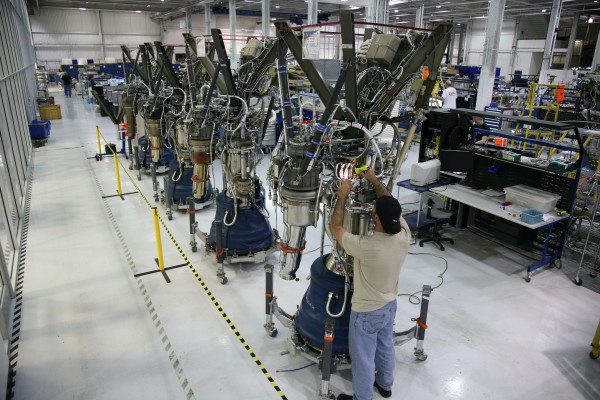In today’s rapidly evolving business landscape, specialized roles in consulting and complex problem-solving have become increasingly important. Drawing inspiration from Henry Ford’s assembly line, modern consulting practices emphasize the value of industry experts and their unique knowledge in tackling contemporary business challenges. By assembling a team of specialized professionals, consulting firms can efficiently address complex problems, much like how the assembly line revolutionized the automotive industry. This article will explore the significance of technical roles in the consulting industry, the impact of Henry Ford’s assembly line on modern problem-solving, and the importance of selecting the right industry experts for optimal results. With a focus on complex problem-solving, consulting industry experts, and the rigorous interview process, we will delve into the best practices for leveraging specialized knowledge in the business world.
Henry Ford’s Assembly Line
Henry Ford’s assembly line is a prime example of how specialized roles can increase efficiency and productivity. By revolutionizing the automotive manufacturing process, Ford’s innovative approach laid the foundation for modern production and problem-solving techniques. In this section, we will journey through the history of the assembly line and its lasting impact on various industries, including consulting.
The assembly line concept, pioneered by Henry Ford in the early 20th century, transformed how cars were produced, making them more accessible and affordable to the masses. This game-changing innovation in manufacturing hinged upon dividing labor into specialized tasks, each performed by a skilled worker. By streamlining the production process, the assembly line significantly reduced the time and resources required to build a car, ultimately boosting productivity and profitability.
Ford’s assembly line principles continue to influence modern industries, particularly in consulting and complex problem-solving. The emphasis on specialized roles and the efficient allocation of tasks mirrors the approach taken by modern consulting firms. By tapping into the unique expertise of industry professionals, these firms can effectively tackle multifaceted business challenges and deliver tailored solutions for their clients.

In the following sections, we will explore how the consulting industry has adopted the core principles of the assembly line, focusing on the importance of specialized knowledge and the rigorous process of selecting the right experts for complex problem-solving.
The Consulting Industry’s Need for Specialized Experts
As businesses navigate an increasingly complex and competitive landscape, the demand for specialized expertise in the consulting industry has grown. Consulting firms recognize the value of harnessing industry experts to address a diverse range of challenges, drawing parallels to the efficiency of Henry Ford’s assembly line. In this section, we will examine the role of specialized knowledge in the consulting sector and how firms capitalize on expert insights to deliver optimal solutions.
Modern business challenges often involve multiple layers of complexity, requiring a nuanced understanding of various industry-specific factors. To effectively solve these problems, consulting firms assemble teams of industry experts, each with unique skills and specialized knowledge. This approach allows firms to dissect complex issues into manageable components and assign each element to an expert with relevant experience and expertise.
By leveraging specialized roles, consulting firms can optimize their problem-solving efforts, ensuring that a qualified professional addresses each aspect of the challenge. This targeted approach enhances the quality of the solutions provided and streamlines the overall process, leading to more efficient and timely outcomes for clients.
In the upcoming sections, we will delve deeper into the specialized roles in complex problem-solving, explore the importance of a rigorous interview process for selecting the right experts, and illustrate the lasting influence of Henry Ford’s assembly line on contemporary consulting practices.
Specialized Roles in Complex Problem-Solving
The success of specialized roles in the consulting industry can be directly attributed to how they facilitate efficient and targeted problem-solving. Drawing from the assembly line principles established by Henry Ford, consulting firms divide complex business challenges into smaller components, assigning each to an expert with the appropriate skill set. This section will explore the intricate dynamics of specialized roles in complex problem-solving and analyze real-world case studies that demonstrate their effectiveness.
Breaking down complex problems into manageable components is a critical step in problem-solving. This approach allows consulting firms to tackle each aspect of the issue independently, enabling a more focused analysis and developing tailored solutions. By assigning specialized roles to industry experts, firms ensure that every component is addressed by a professional with relevant knowledge and experience, ultimately enhancing the quality of the outcome.
Case studies from various industries illustrate the power of specialized roles in complex problem-solving. For instance, a consulting firm may assemble a team of financial, operational, and marketing experts to help a struggling retail company overcome its challenges. Each expert would focus on their expertise, such as identifying cost-saving opportunities, streamlining operations, or improving marketing strategies. The combined efforts of these specialized professionals would result in a comprehensive solution that addresses the company’s issues from multiple angles.
In the next section, we will discuss the importance of a rigorous interview process for selecting the right industry experts, emphasizing the need for a strong match between the expert’s skills and the client’s needs to ensure the success of the consulting engagement.
Identifying Experts Using a Rigorous Interview Process

Selecting the right industry experts for specialized roles in consulting engagements is crucial to the success of complex problem-solving initiatives. As Henry Ford’s assembly line relied on skilled workers to perform specific tasks, consulting firms must ensure that their teams comprise professionals with the appropriate expertise and experience. This section will examine the importance of a rigorous interview process in identifying the best industry experts and the key components that contribute to an effective selection process.
Building a solid consulting team is finding the right match between the experts’ skills and the client’s needs. To accomplish this, consulting firms employ a meticulous interview process that evaluates potential candidates on various dimensions, including technical knowledge, industry experience, problem-solving abilities, and communication skills. This thorough approach helps firms identify professionals who are not only experts in their fields but also can effectively collaborate and contribute to the team’s overall success.
The interview process typically involves several key components, such as pre-screening questionnaires, in-depth interviews, technical assessments, and situational case studies. By incorporating multiple evaluation methods, consulting firms can comprehensively understand the candidates’ capabilities, ensuring that they select the best fit for the project at hand.
Ultimately, a rigorous interview process plays a vital role in forming a team of specialized experts capable of addressing the unique challenges faced by clients in various industries. By selecting the right professionals, consulting firms can effectively leverage the power of technical roles in complex problem-solving, following in the footsteps of Henry Ford’s assembly line and its lasting influence on modern business practices.
In conclusion, specialized roles in the consulting industry are pivotal in addressing complex business challenges, drawing inspiration from the efficiency and effectiveness of Henry Ford’s assembly line. By assembling teams of industry experts with diverse skillsets and experiences, consulting firms can tackle multifaceted issues in a targeted and efficient manner, offering clients comprehensive and tailored solutions.
This article has explored the historical perspective of Ford’s assembly line, its impact on the consulting industry, and the importance of specialized roles in complex problem-solving. We also delved into the rigorous interview process that consulting firms use to identify the right experts for each engagement. This ensures a strong alignment between the professionals’ skills and the client’s needs.
As businesses navigate an increasingly complex and competitive landscape, the demand for specialized expertise and practical problem-solving strategies will only grow. By embracing the principles of Henry Ford’s assembly line and leveraging technical roles in consulting, firms can rise to the challenge and deliver optimal results for their clients.